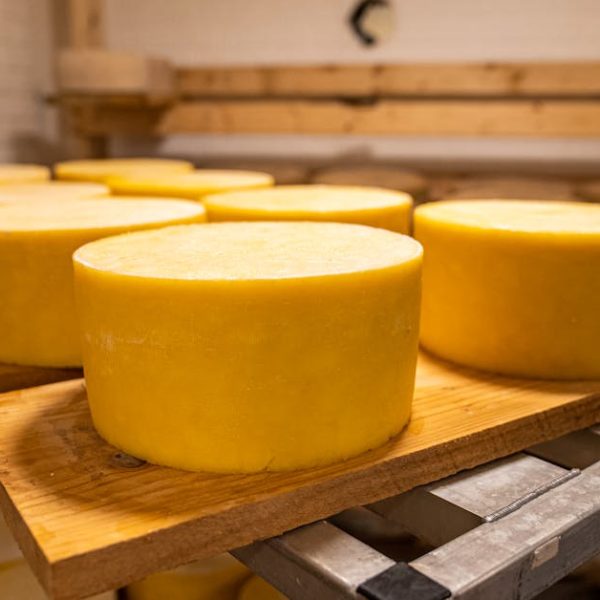Storing fresh eggs is something of an art form. If done correctly, it can extend their freshness, enhancing the taste of your baked goods, omelets, and other egg-containing dishes. Various clever storage solutions exist that cater to different needs, preferences, and kitchen setups. This article will explore six profoundly effective methods of storing your fresh eggs, from common practices to innovative measures that not only maintain the eggs’ quality but also add aesthetic appeal to your kitchen space.
1. Refrigerated Storage for Fresh Eggs
Refrigeration is the most common method of preserving fresh eggs, primarily due to its convenience and ability to prolong egg freshness. Ideally, eggs should be stored at temperatures of around 40° F. Under correct refrigeration, eggs can stay fresh for an extended period. Storing eggs in the main body of the fridge, preferably on a middle shelf, ensures optimal temperature control.
Advantages of Refrigerated Storage for Fresh Eggs
- Extends egg freshness beyond three weeks.
- Reduces the risk of bacterial growth, such as Salmonella.
- Excellent for storing store-bought or already washed farm eggs.
Pro Tips: How to Use the Refrigerator for Optimal Egg Storage
- Avoid the fridge door for egg storage as temperatures can fluctuate.
- Keep eggs in their original carton to protect them from absorbing other flavors in the fridge.
2. Egg Baskets for Room Temperature Storage
Egg baskets are a charming and practical method of storing fresh eggs at room temperature. While not as long-lasting as refrigeration, baskets can keep eggs fresh for 1-2 weeks. A cool, dry, well-ventilated area away from direct sunlight makes for ideal conditions. These storage vessels come in various designs, showcasing homestead charm, or sleek modern aesthetics, depending on your preference.
Checklist: Tips and Precautions While Using Egg Basket for Storage
- Avoid overcrowding the basket to prevent egg breakage.
- Regularly rotate eggs to ensure they’re used in the order they were laid.
Best Practices: Guidelines for Maintaining Egg Quality While Using Egg Baskets
- Leave unwashed farm eggs at room temperature as the natural “bloom coats the eggshell, protecting against bacteria.
3. Using Egg Skelters for Organised Storage
Egg skelters are a unique and increasingly popular egg storage solution. Designed with a spiral track, they effortlessly sort your eggs by age, ensuring the oldest eggs are used first. Aside from being an organisational masterpiece, an egg skelter serves as an attractive kitchen display, adding a touch of fun and quirkiness to the room.
Pros and Cons of Using Egg Skelters
| Pros | Cons |
|---|---|
| Helps in easy identification and usage of old eggs | May not be convenient for refrigeration |
| Acts as an attractive kitchen display | Can be a bit pricy compared to other storage methods |
Pro Tips: Suggestions for Efficient Use of Egg Skelters
- Ensure eggs are properly cleaned before putting them on the skelter.
- Always add new eggs from the top for a smooth flow of the ‘first in, first out’ system.
4. Egg Boxes for Compact Storage
Egg boxes are a hassle-free storage alternative, particularly for those with limited kitchen space. These compact containers allow you to stack your eggs neatly, preventing them from rolling about and breaking. Moreover, egg boxes made from recycled materials offer an eco-friendly way to keep fresh eggs, contributing positively to environmental sustainability.
Different Types of Egg Boxes Available in the Market
- Cardboard Egg Boxes: Affordable and widely available.
- Plastic Egg Boxes: Often clear, allowing for easy egg inspection without opening.
- Styrofoam Egg Boxes: Provide superior shock absorption, protecting against breakage.
Best Practices: How to Properly Use and Maintain Egg Boxes for Long-Term Storage
- Clean your egg boxes regularly to prevent bacterial build-up and ensure eggs stay fresh.
- Rotate your stash often (the oldest eggs on top) to minimize waste.
5. Preserving Fresh Eggs in Limewater or Mineral Oil
Traditional methods for preserving fresh eggs have stood the test of time, proven by generational usage. Immersing eggs in limewater or coating them in mineral oil can extend their freshness remarkably. Both practices create a barrier that blocks bacteria and air from penetrating the eggshell. While these methods may seem old-school, they can keep eggs fresh for several months!
Limewater vs Mineral oil – Which is a Better Method for Preserving Eggs
| Limewater | Mineral Oil |
|---|---|
| Cost-effective and easy to prepare. | Available in most homes and stores. |
| Larger space is required for storing submerged eggs. | Simpler storage and takes up less space. |
Pro Tips: Essential Steps to Follow for Preserving Eggs Using These Methods
- For limewater preservation, use a glass or ceramic container to avoid any reactions with the lime.
- For mineral oil, wear gloves when applying oil to the eggshell to ensure even coating.
6. Specialized Egg Storage Containers
Modern egg storage solutions, such as specialized egg containers, are gaining popularity for their added benefits. These innovative containers can come with airtight lids, stackable units, and even temperature control features. Suitable for both home and professional kitchens, these containers merge practicality with contemporary style for an impressive egg storage solution.
Checklist: Features to Consider While Buying a Specialized Egg Storage Container
- Opt for containers with individual compartments to reduce breakage risk.
- Choose materials that are easy to clean and bacteria resistant, like stainless steel or glass.
Comparison: Advantages and Drawbacks of Using Specialized Egg Storage Containers
| Advantages | Drawbacks |
|---|---|
| Offer superior protection for eggs, reducing breakages. | These containers may be more expensive than traditional storage methods. |
| Exists in various models, styles, and materials to suit user preferences. | Some models may take up more fridge or shelf space. |
Storing fresh eggs doesn’t have to be a mundane task. By choosing a method that matches your preferences, you can ensure that your eggs taste fantastic, whether you’re whipping up a classic scrambled egg breakfast, baking your favorite sweet treat, or anything in between. So, pick your ideal solution and enjoy the full worth and taste of your fresh eggs.
Key Takeaway:
- Refrigeration is a common and effective method of preserving fresh eggs, keeping them fresh for over three weeks.
- Egg baskets provide a practical and visually appealing option for room temperature storage.
- Egg skelters offer a unique organizational solution. They sort eggs by age and serve as an interesting kitchen display.
- Compact and eco-friendly, egg boxes are ideal for those with limited kitchen space.
- For preservation over several months, traditional methods like limewater immersion or mineral oil coating work effectively.
- Specialized egg storage containers with features like airtight lids and temperature control are becoming popular for their added benefits and contemporary design.
Keeping your eggs fresh and tasty doesn’t have to be a chore with these diverse storage methods. Consider your kitchen requirements, efficiency, and aesthetic appeal to decide on the best solution for you, and savor the delicious impact on your dishes.
FAQs
Q: How long can I store fresh eggs in the fridge?
A: Fresh eggs can be safely stored in the refrigerator for up to five weeks if stored correctly at a temperature of around 40° F.
Q: Can I store fresh eggs at room temperature?
A: Yes, fresh eggs can be stored at room temperature using containers like egg baskets. However, they should be used within 1-2 weeks.
Q: What are the benefits of using an egg skelter?
A: Egg skelters help in organizing your eggs by age, ensuring you always use the oldest eggs first. They also serve as a decorative piece in your kitchen.
Q: How do limewater and mineral oil preserve eggs?
A: Both limewater and mineral oil create a protective barrier that prevents bacteria and air from penetrating the eggshell, keeping eggs fresh for several months.
Q: What features should I look for in a specialized egg storage container?
A: Consider containers with individual compartments, airtight lids, and stackability. The material should be easy to clean and resistant to bacteria, such as stainless steel or glass.
Explore more innovative and practical solutions on our website and share this article with others interested in effective egg storage methods.






